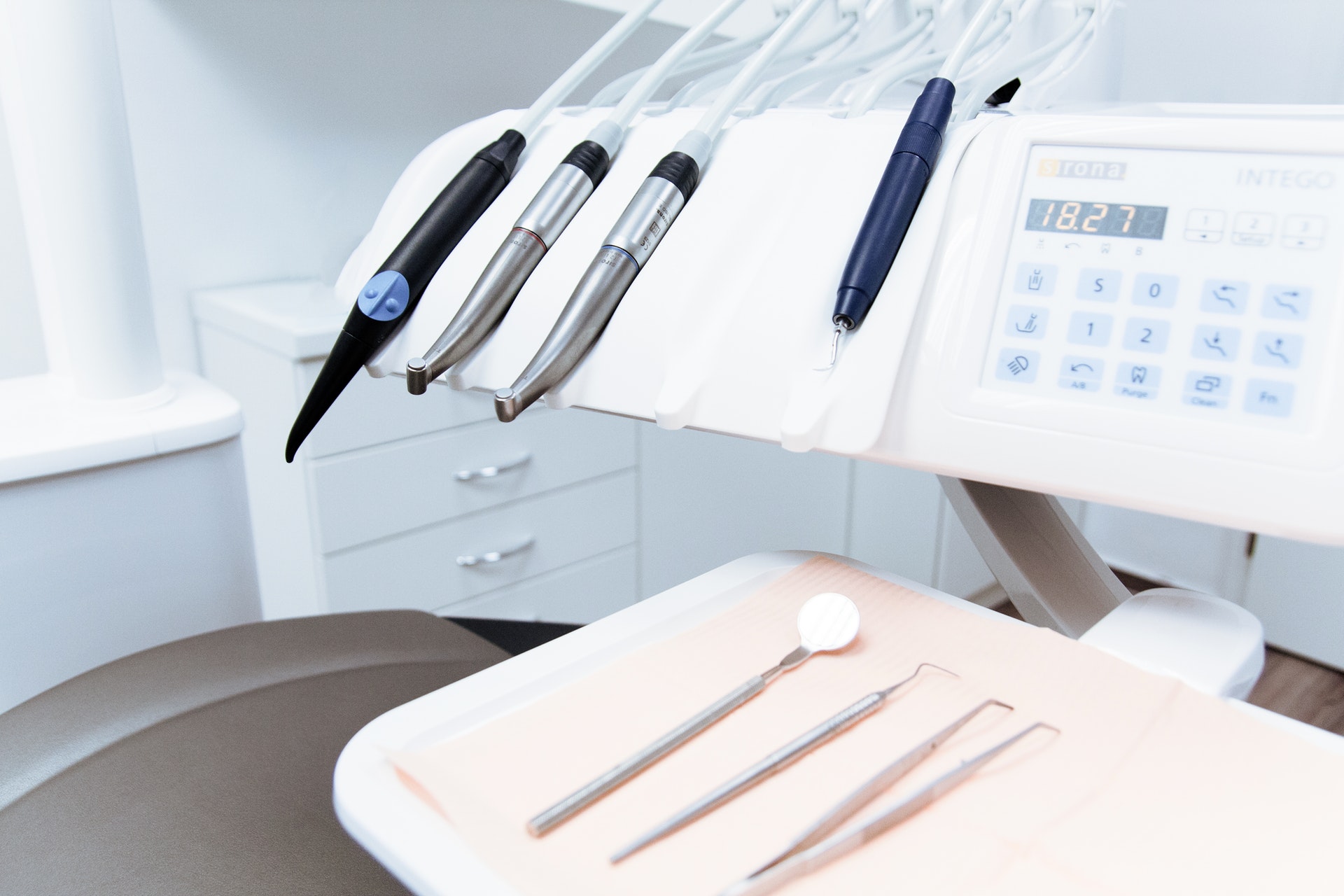One of the most common questions we receive from the patients visiting our dental office in Ottawa is about the difference between veneers vs crowns, and what is the best choice.
While crowns and veneers are similar in their design process, procedure, and final appearance, both of them have their own specifics and work better in some situations rather than the others.
Veneers vs Crowns: The Difference
A crown is around 2mm thick and covers the entire tooth. It can be made either of porcelain, metal alloy, or porcelain fused to a metal alloy.
A veneer, on the other hand, is only around 1mm in thickness and is bonded only to the front surface of the existing tooth. Veneers can be made of porcelain or other materials.
Whether you need a veneer vs crown will depend on your specific situation and treatment needs. The most common conditions requiring crown or veneer restorations are:
- Cracked, chipped, or broken teeth
- Discoloured teeth
- Crooked teeth
- Weakened or decayed teeth
Both veneers and crowns will be perfectly colour-matched to your teeth, except the crowns that are made out of metal.
What is a Veneer?
 A veneer is a thin layer of porcelain that is bonded to the front of the tooth. Veneer restorations aren’t as invasive as crowns, because the preparation doesn’t require as much filing of the original tooth enamel.
A veneer is a thin layer of porcelain that is bonded to the front of the tooth. Veneer restorations aren’t as invasive as crowns, because the preparation doesn’t require as much filing of the original tooth enamel.
In order to get the tooth ready for a veneer, about 0.5mm of the enamel covering the front part of the tooth is filed down to prepare the surface to be bonded with the veneer. This filing or grinding may be uncomfortable, so you might require local anesthesia.
For the veneer to be placed, it is important that your tooth have enough enamel to be bonded with the veneer.
Dental Veneer Procedure
If you need to get a veneer, your dentist will perform the following steps:
- The dentist will take an impression of your prepared tooth. They will either digitally scan it or use a mould. The image or mould will be used to create the veneer.
- You may have a temporary veneer placed on your tooth while you are waiting for the final one.
- Once ready, the temporary veneer will be removed, and the permanent one will be bonded to your tooth with special cement and hardened with an ultraviolet lamp.
- Once the veneer is in place, you can take care of it just like you would take care of your natural teeth, with brushing and flossing regularly. However, if you tend to grind or clench your teeth at night, you might need to wear a nightguard to prevent the veneer from breaking.
What is a Crown?
Unlike a veneer, a dental crown covers the entire tooth. With a crown, more of the tooth needs to be ground down to prepare it for the crown placement.
If you have cavities or tooth decay, your dentist will first remove the decayed portion of the tooth. In this case, your tooth may need to be reconstructed to be able to support the crown. You may require local anesthesia for this procedure.
Dental Crown Procedure
- The dentist will take an impression of your tooth with a digital scan or a mold. The scan or a mold will then be used to fabricate a custom crown.
- While waiting for the custom crown to be made, the dentist may place a temporary crown on the prepared tooth.
- As soon as the permanent crown is ready, the dentist will replace the temporary crown with the permanent one. They will adjust it to make sure your bite is right and the crown fits correctly. Finally, they will cement the crown in place.
Similarities Between Veneers vs Crowns
While veneers vs crowns have their differences, there are a few ways in which they are quite similar:
The Procedure for Veneers and Crowns
Both crowns and veneers are custom made of porcelain and are cemented to individual teeth. Both of these restorations require some prep work of the natural tooth, followed by an impression or scan.
It can take a few weeks for a crown or veneer to be produced. In the meantime, you will wear a temporary plastic-like restoration held in place with interim cement.
Once the time comes to have your permanent crown or veneer installed, you will come back to your
Ottawa dentist for the placement appointment. Dr. Koniouchine will remove the temporary restoration, clean the natural tooth, and permanently cement the custom-made restoration.
The Care for Veneers and Crowns
 Taking proper care of your veneers and crowns at home will ensure that your natural tooth and the restoration on top will stay healthy and strong.
Taking proper care of your veneers and crowns at home will ensure that your natural tooth and the restoration on top will stay healthy and strong.
Brush your teeth twice a day, and pay additional attention to the gum line, where the porcelain meets the tooth. This area is most vulnerable to plaque buildup, which would cause tooth decay if not cleaned properly. It is also important to floss your teeth every day to remove any food particles in between the teeth.
In addition to proper at-home care, you also need to regularly visit your dental clinic for professional cleaning and a check-up appointment with Dr. Koniouchine. While you are here, we can make an X-ray of your dental work to make sure that your tooth remains healthy underneath.
If the problems are caught early, treating them would be a lot easier and less expensive.
The Cost for Veneers and Crowns
On average, both veneers and crowns cost around $1000 per tooth, depending on the material. Insurance would usually cover a portion of the cost for crowns, but not cosmetic veneers.
If you take good care of your new dental work, they will last you for many years to come without the need for updates or replacement.
Veneers vs Crowns: Which One is Right for You?
When Crowns are a Better Option
We use crowns to fix missing, frail, and broken teeth. Things like tooth decay, cracked fillings, root canals, and teeth grinding can cause damage that cannot be fixed by a standard filling. A dental crown can permanently cement over top of an existing tooth’s surface to restore the tooth and give it more strength.
The crown can also be constructed to maintain a specific shape and size similar to your original teeth or to provide the appearance that you desire. Each crown is also engineered to last up to eight years with proper maintenance. At Rockcliffe Dental, we use advanced artificial tooth crowns that will match your teeth and are guaranteed to leave you with a beautiful, natural-looking smile.
When Veneers are a Better Option
The best candidates for veneers are those with sturdy teeth that have visible flaws. This includes teeth that are discoloured, contain visible cracks and chips, are smaller or larger in size, or have gaps.
Porcelain veneers are more cosmetic in nature and can help to improve the look of any unsightly teeth and bring back your self-confidence. They do not cover your entire tooth, so they are a little easier to replace if you damage them or would like a new one.
Plus, veneers offer incredible strength and durability, lasting for many years with proper care, and are a more affordable option than dental implants. If you’re unhappy with your smile and are searching for a way to restore your teeth, porcelain veneers are an ideal way to gain a more revitalized smile.
Pros and Cons of Veneers vs Crowns
Both veneers and crowns have their pros and cons. The ideal dental restoration will depend on your specific situation and your needs.
Veneer Pros:
- Veneers require less filing as compared to crowns, so more of your natural tooth is saved
- Veneers may be more aesthetically pleasing in the long run, since they don’t show a gum margin after several years, as crowns may do.
- Teeth with veneers do not have movement.
Veneer Cons:
- Veneers aren’t reversible.
- Veneers are often not covered by insurance.
- Veneers cover only the front surface of the tooth, leaving most of your tooth exposed to new decay.
- Composite veneers are cheaper but may last only 5-7 years. Other materials can last longer, but will still need to be replaced eventually.
Crown Pros:
- Porcelain crowns look and feel like a natural tooth.
- All the tooth surface is covered, meaning that your tooth is protected from decay.
- Dental insurance may cover a portion of the crown cost.
- Crowns are permanent and don’t have to be removed for cleaning like dentures.
Crown Cons:
- The tooth needs to be filed down to make space for the crown.
- Porcelain is fragile and may break over time.
- Porcelain fused to a metal alloy (PFM) crown shows a thin dark line between the crown and the natural tooth.
- Your newly-crowned tooth may be more sensitive to heat and cold, and you may experience some gum pain. If sensitivity doesn’t subside, contact your dentist for a follow-up appointment.
Questions to Ask Your Dentist
At your initial appointment, it is important to ask how much would veneers or crowns cost and whether insurance would cover a portion of the cost. You would also want to know whether the dentist is experienced in these procedures.
Luckily, at Rockcliffe Dental & Denture Centres, all our dentists are highly trained and have years of experience in both crowns and veneers.
Some other questions you may want to ask include:
- How long is the crown or veneer material expected to last?
- Will I need to wear a mouthguard?
- Are there other options to consider, such as dental implants or dentures?
- Do you recommend any special care for the crown or veneer?
- Would the initial cost cover future adjustment visits if the crown fit isn’t right?
Contact Us Today to Learn About Your Tooth Restoration Options
If you think you may need a veneer or crown, but aren’t sure which one is best for you, don’t hesitate to schedule an appointment with Dr. Koniouchine at Rockcliffe Dental & Denture Centre.
Whether your Ottawa dentist recommends you to go with veneers vs crowns, you can be sure to receive a beautiful smile and restore the function of your teeth.
Give us a call today!
- Learn more about porcelain veneers in Ottawa
- Learn more about tooth crowns and dental bridges in Ottawa
- Learn how to maintain your veneers and chip fillings
- Learn whether veneers are right for you
- Learn what is a dental crown